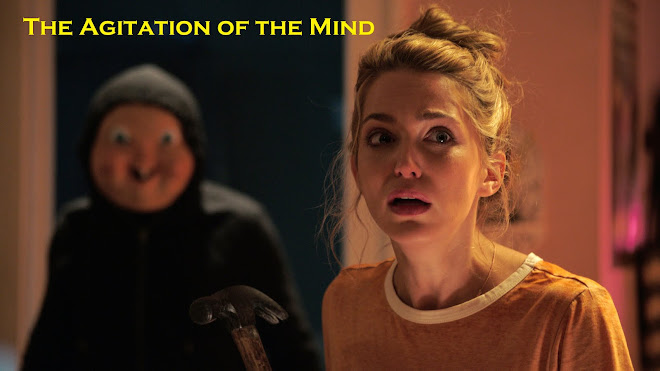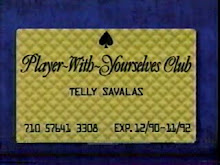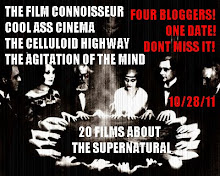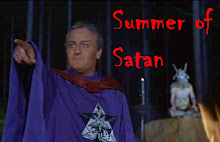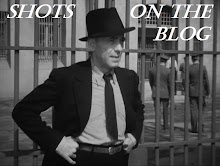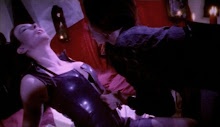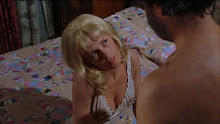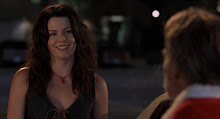Sunday, May 22, 2016
X-Men: Apocalypse
The accepted critical thinking on ‘X-Men: Apocalypse’ is that:
1. It’s the same old “battle for Erik Lenscherr’s soul” story pace ‘First Class’ and ‘Days of Future Past’;
2. The Auschwitz bit is really tasteless;
3. The Quicksilver set piece is merely a reprise of the one in ‘Days of Future Past’;
4. Too many characters are thrust into one movie without development;
5. The finale is sprawling and incoherent.
Maybe I saw a totally different cut of the film, but I enjoyed the hell out of ‘X-Men: Apocalypse’. Granted, it might not have the sharp stylishness of ‘First Class’ (which I still regard as a Bond movie with mutants) or the timeline-jinking audacity of ‘Days of Future Past (which I still consider a horribly clunky title); nor is it as keyed into its period setting as those two. But it develops the themes of family, mistrust, politics and absolute power present in the preceding instalments; it brings Jean Grey (Sophie Turner) and Nightcrawler (Kodi Smit-McPhee) into the new timeline in fine style; and it turns its mutants vs. mutants storyline into a commentary on political manipulation, menticide and man’s inhumanity to man. In this respect, just as ‘Days of Future Past’ earned itself major kudos for obliterating the fuck-awful ‘Last Stand’ from the chronology, ‘Apocalypse’ assimilates everything ‘Last Stand’ tries to be and does the job properly.
Only the mainstream reviewers would have you think otherwise, so in lieu of the more traditional Agitation review, let’s have a look at that quintet of critical carping and subject each item to a validity test:
1. The Professor X (James McAvoy)/Magneto (Michael Fassbender) conflict is the dynamic upon which the franchise is founded. It’s like Bond/Blofeld or Batman/the Joker, and for my money the new X-Men timeline ups the ante on the conflict by grounding it not in the differences between Professor X and Magneto but the battered and compromised but still salvageable friendship between Charles and Erik. Throwing all of that away just to have Magneto as an all-purpose villain would be akin to flushing the crux of the franchise’s human drama down the shitter;
2. Yes it is, but this is the third film that explicitly references Auschwitz and (a) the sequence is shorter than in ‘X-Men’ or ‘First Class’; (b) nobody carped about using the Final Solution as a plot device in those two films; and (c) it’s where Magneto’s powers and his anger were forged so of course it’s where Apocalypse (Oscar Isaac) would take Magneto to ensure his complicity;
3. Quicksilver (Evan Peters) having a big set piece where time seems to slow down as he casually moves people and objects across a spatially intense chess board is basically what Quicksilver fucking does and having him in the movie and not giving him that moment would be like having Blofeld in a Bond movie and not giving him a crack at world domination, or not letting Inspector Morse have a pint while he listens to some Wagner. Or not letting Inspector Regan clobber a suspect. Or not letting Scottie beam anybody up. You’d be missing the fucking point. Besides, the context, logistics and outcome of Quicksilver’s race against time are drastically different from ‘Days of Future Past’.
4. True to a degree, with Storm (Alexandra Shipp) locked into a narrative arc requiring a last reel volte face that never quite seems earned and Psylocke (Olivia Munn) given some visually iconic moments but criminally underused; but the same can be said of ‘Captain America: Civil War’ and again nobody seemed to complain about the overstuffed and – let’s be honest – unsuspenseful airport showdown.
5. No more so than any finale in any superhero movie ever. In fact, it didn’t seem to drag on anywhere near as long as the ‘Hulk’ finale (in which I zoned out as two screensavers threw ever larger objects at which other), the ‘Age of Ultron’ slugfest or the double denouement of ‘Batman vs Superman’. In fact, I’d say that ‘Apocalypse’ is the paciest of this year’s triptych of two-and-a-half hour comic book adaptations. (Assuming that neither ‘Suicide Squad’ or ‘Doctor Strange’ will be grasping for such epic running times.)
In addition to the above, factor in Jennifer Lawrence finally making Mystique her own, stepping out of the shadows of both Magneto in terms of the character and Rebecca Romjin-Stamos in terms of performance; Fassbender nailing a squirmily inevitable moment where Magneto, trying to live a normal life, is pushed back onto a vengeful and destructive path; a Wolverine (Hugh Jackman) cameo that gives us the character as a vessel of pure animalistic rage; CGI that serves the story rather than swamping it; and a genuinely chilling scene, scored to the second movement of Beethoven’s Seventh Symphony, where Apocalypse prompts a simultaneous launch into space of all nuclear missiles.
All things considered, it’s only the foul-mouthed and fourth-wall-breaking loveability of ‘Deadpool’ that’s stopping me from proclaiming this as the best superhero movie of the year. Sorry, Cap.
Friday, May 20, 2016
Our Kind of Traitor
John le Carré hasn’t done badly in terms of his work being adapted. Unlike, say, James Ellroy who has one classic (‘L.A. Confidential’), one damn good film (‘Cop’, a fairly loose take on his early novel ‘Blood on the Moon’) and two total misfires (‘Brown’s Requiem’ and ‘The Black Dahlia’). Or Len Deighton, who has the first two Harry Palmer films (‘The Ipcress File’ and ‘Funeral in Berlin’) and the TV adaptation ‘Game, Set and Match’ to be proud of, and terrible versions of ‘Spy Story’ and ‘Only When I Larf’ (itself a particularly weak novel).
Le Carré, however, has three bona fide classic big screen treatments: ‘The Spy Who Came in from the Cold’, ‘The Constant Gardener’ and ‘Tinker Tailor Soldier Spy’, and four pitch-perfect serials for television: ‘Tinker Tailor Soldier Spy’, ‘Smiley’s People’, ‘A Perfect Spy’ and ‘The Night Manager’. Even the second division of le Carré adaptations – ‘The Looking Glass War’, ‘The Little Drummer Girl’, ‘The Tailor of Panama’, ‘A Most Wanted Man’ – are only second division because of just how damned good the top tier titles are. In fact, there’s only really Fred Schepisi’s misjudged take on ‘The Russia House’ and a couple of pedestrian adaptation of the early novels that let the side down.
‘Our Kind of Traitor’ slots solidly into this second tier, and it’s a damned shame because it could so easily have been a masterpiece. The plot – Russian mafia; money-laundering; political corruption; banking as the legitimate face of multi-billion pound criminality – is as timely as when the novel was published six years ago. The script was by Hossein Amini, a confident adapter of literary works (‘The Wings of the Dove’, ‘The Four Feathers’, ‘The Two Faces of January’). The cast is a publicist’s dream: Ewan McGregor, Stellan Skarsgård, Damian Lewis and Naomi Harris.
The problems start with the choice of director. Susanna White has notched up an impressive small screen CV, helming episodes of ‘Boardwalk Empire’, ‘Masters of Sex’ and ‘Billions’, but directing for TV and directing for film are vastly different disciplines, and White’s only other big screen outing was ‘Nanny McPhee and the Big Bang’. Not exactly a showreel for a dark, cynical espionage drama. And speaking of showreels, Anthony Dod Mantle’s cinematography is visual attention-seeking at its worst, all surface sheen and artsy fascination with reflection and distortion – which might have suited one of le Carré’s Cold War opuses but just gets in the way here. ‘Our Kind of Traitor’ is concerned with massive levels of corruption, ruthless oligarchies and the human cost of a family at risk. The film cries out for focus, for precisely rendered details, for a foregrounding of fieldcraft and an absolute exposition of what’s at stake. Instead, Dod Mantle assembles what increasingly looks like a “for your consideration” Oscar campaign.
Amini’s script finds a narrative throughline which belies the complexities of le Carré’s novel – no mean feat: there’s a reason why his books often lend themselves better to the long form of a television series – but his flair for nuance and the human element needs to be underpinned by a sense of urgency for the story to work, and neither the direction or editing provide this. Case in point: late in the game, a number of characters find themselves holed up in a safe house in the middle of nowhere; one of them makes an ill-advised decision which leads a team of assassins to their location. The resulting shoot out is filtered through the perspective of someone who’s holding a gun for the first time, hiding in a cellar, and torn between staying put or going outside, protecting his charges or determining whether those charged with protecting him are even still in the game. His cognizance of what is happening boils down to offscreen gunshots, heavily suggestive silences and occasional voices in a foreign language. The scene should be razor-wire tense; sweatily claustrophobic. Done by Hitchcock, or Argento at his best, it would be nerve-shredding; almost unbearable. Hell, Tarantino pulled this kind of thing off with aplomb in the opening section of ‘Inglourious Basterds’. In the hands of White and her two editors, it’s merely ho-hum.
Fortunately, White seems to invest more in her direction of actors. Granted, McGregor is one of those performers who does one specific thing very well – in his case, a boyish, slightly sheepish persona – but that one thing suits the character well enough. Harris takes an underwritten role and emerges with a fully rounded performance – she really is one of the best actresses around at the moment and mainstream cinema still hasn’t woken up to that fact. Lewis makes the wise decision to understate, playing his scheming spymaster as a man who has spent his entire career wearing a poker face. Even in two slightly out-of-character scenes – an impassioned plea to his governmental bosses who would rather he didn’t pursue one particular lead any further; and a deliberate taunt to a long-standing nemesis – the emotional imperative behind his machinations only barely shows. In fact, Lewis risks appearing bland in his characterisation and it’s perhaps not till the very last scene that his gamble plays off.
Skarsgård aces it as mob accountant Dima, a man whose time is running out as a new cabal of oligarchs viciously dispose of all traces of the old guard in order to present a shiny new vision of capitalist Russia for the benefit of UK investors. It’s a deliberately big, rambunctious performance, Dima stomping across the screen like a bear of a man, his body language a symphony in expressive gestures, his colloquy making poetry of the vulgar. Then, incrementally, Skarsgård reveals the cracks in the mask, the fear behind the flamboyance, the desperation to survive and to protect his family. It should be no surprise to anyone that Skarsgård is this good – but the real surprise that ‘Our Kind of Traitor’ has up its sleeve is Saskia Reeves as his long-suffering but nobly stoic wife: a nothing role on paper – indeed, virtually wordless – but one that she imbues with a humanity that is at the same time rigidly unsentimental and utterly poignant. Every time she’s on screen, it’s a searing glimpse of the masterpiece the film could have been.
Tuesday, May 17, 2016
Captain America: Civil War
With massive tentpole movies locked into extremely specific release dates way ahead of their actual releases, 2016 was always going to be the Summer of Superheroes Twatting Other Superheroes: ‘Batman vs Superman: Dawn of Justice’, ‘Captain America: Civil War’, ‘X-Men: Apocalypse’. Hell, let’s call it Summer of the Semi-Colon by way of an alias.
‘B vs S’ was first out of the traps and got the kind of critical drubbing last seen aimed at ‘The Lone Ranger’ (and like that movie, ‘B vs S’ – while no classic – turned out better than anyone gave it credit for), and ‘X-Men: Apocalypse’, which opens in the UK tomorrow, is already being submerged by a wave of negative reviews.
‘Captain America: Civil War’ was always going to emerge victorious. Unlike the rushed attempt to springboard a two-part Justice League movie after just ‘Man of Steel’ and ‘B vs S’, and unlike the all-of-the-place quality control of the ‘X-Men’ franchise and the narrative shell-game of the timelines (Deadpool’s piss-taking line in his own magnificently meta solo movie is a spot-on bit of parody), Marvel have developed their stable of icons and villains over a decade and a dozen movies. Nothing in ‘Civil War’ feels rushed or shoe-horned in. The MCU’s timelines and nexus points have been so carefully mapped out that ‘Civil War’ variously functions as: the conclusion to the Steve Rogers/Bucky Barnes arc that links ‘The First Avenger’ and ‘Winter Soldier’; a de facto ‘Age of Ultron’ sequel (only sans Hulk and Thor); a passing on of the baton from Peggy Carter to Sharon Carter (a.k.a. Agent 13 – and kudos to all concerned for giving Emily Vancamp more to do this time round); ‘Iron Man 4: Let’s Give Tony Stark’s Ego Another Kicking’; a showreel for ‘Black Panther’; and a teaser trailer for ‘Spider-Man: Hey, Kids, We’ve Got the Rights Back and This Time it Won’t be an Andrew Garfield Suck-Fest, Honest’.
In other words, there’s a lot going on in ‘Civil War’. The opening mini-movie (redolent of a James Bond pre-credits adventure) has the team intercepting some desperados out to get their filthy paws on a biological weapon. One of these desperados is Crossbones (Frank Grillo), Cap (Chris Evans)’s second division nemesis from ‘Winter Soldier’, and he almost gets the drop on our square-jawed hero. Enter Scarlet Witch (Elizabeth Olsen), who takes care of business but at the cost of an entire building and some civilian casualties.
This debacle coming so soon after the city-wide destruction of ‘Age of Ultron’, the Avengers are hauled up before a committee (making ‘Civil War’ the second major superhero movie, after ‘B vs S’, to steal a plot point from ‘The Incredibles’) and it is impressed upon them that if they want to continue saving the world, they’d better agree to some checks and measure PDQ. Because nothing says “thank you for saving the world” more than grey-suited bureaucracy.
At this point, ‘Civil War’ makes the first of a couple of wobbles – neither are franchise-disruptingly serious, but they’re still annoying. Cap’s reticence to accede to the whims of politicians is understandable given the political conspiracy shenanigans he got caught up in the middle of in ‘Winter Soldier’. However, Stark (Robert Downey Jnr)’s volte face from supremely arrogant twat who was basically the architect of everything bad that happened in ‘Age of Ultron’ to bleeding-heart/survivor’s-guilt-orphan-boy/ascendee-to-moral-high-ground comes off as a character arc too far; it’s founded on just one scene – and no matter how good Alfre Woodward is as the voice of conscience, I just don’t buy Stark’s tunnel-vision Messianic certainty crumbling based on just this one encounter. Indeed, something happens to War Machine (Don Cheadle) late in the game that, if the scripters had found a way to stage it at the outset, would have pushed Stark down the required narrative avenue a lot of convincingly.
The fact remains, though, that this is ‘Cap vs Iron Man’ and the conflict needed to be established pretty quickly. It’s compounded, effectively enough, by a bombing that disrupts the signing of the accord and for which one B. Barnes Esq is in the frame. Only Cap won’t give up on his old buddy and goes rogue in order to find out the truth of the matter. This section, Cap teaming up with Sharon Carter (and a potential romance simmering away), while one B. Panther Esq (the effortlessly charismatic Chadwick Boseman – bring on the guy’s solo movie) stalks Bucky, is easily the best part of the film.
Soon enough, though, loyalties are tested and sides are taken and it’s time for the big airport smackdown – and ‘Civil War’ takes its second wobble. The sequence is a grandslam piece of showboating which is (a) utterly devoid of narrative tension – after all, Helmut Zemo (Daniel Bruhl) has been plotting away in the background so it’s no surprise that Bucky will turn out to be innocent(ish) and the revelations about the real villain of the piece reserved for the final act; and (b) simply too top heavy. If ‘Civil War’ is one green monster from the id and one Nordic god short of being an actual Avengers film, then it overcompensates for their absence by throwing everyone else into the mix. When the warring factions square off against each for fifteen minutes of action, a few sardonically humorous character beats and about a gazillion dollars of special effects, the viewer is presented with – on screen at the same time – Captain America, Iron Man, Black Widow (Scarlett Johannson, shockingly short-changed by the script), Hawkeye (Jeremy Renner), Vision (Paul Bettany), Scarlet Witch, War Machine, Falcon (Anthony Mackie), Ant Man (Paul Rudd), Spider-Man (Tom Holland), Bucky Barnes and Black Panther. That’s twelve iconic characters having a brawl. For fifteen minutes. During which Ant Man makes buses and planes and even himself very small and/or very big. For the most part, the scene is fast, frothy and funny (“are we still friends?” as former partners trade punches; Spider-Man being reminded that fighting doesn’t usually involve so much talk), but it never escapes the fact that it’s so top-heavy the bottom of the screen practically screams for an RSJ to shore it up.
Thankfully, the film continues for another half hour and gets its groove back on (mostly: there’s one horrible moment that’s written in purely to stoke up Stark’s hatred for Bucky, and the way it’s incorporated sucks donkey balls), moving towards a finale that doesn’t actually require entire postcode areas to get blown up or mansion-sized gunships drop from the sky.
As ‘Winter Soldier’ debated the legitimacy of control, ‘Civil War’ questions what happens with it. The script stacks things in a certain someone’s favour, and does so in such a way as to absolve them of any and all thorny j’accuses. There’s a similar sense of cop-out as regards the politics of piece, which don’t make a lot of sense when you subject them to even the slightest critical scrutiny. Nonetheless, when it does work, it works brilliantly. Its best moments are, by turns, exciting, flamboyant and intense. ‘Civil War’ is, like the previous Captain America films, a superhero movie that’s actually about something; and it gets to play around with big themes without hunkering down in a mire of crushing joylessness a la ‘B vs S’.
The thorn in its side – arguably the thorn in every other superhero movie’s side – is ‘Deadpool’. In a way that no example of its ilk has done in recent years (bar, notably, ‘Guardians of the Galaxy’), ‘Deadpool’ allowed the superhero movie to be fun: big, dumb, adult-orientated fun. How the next slate of Marvel offerings shape up remains to be seen, likewise whether ‘X-Men: Apocalypse’ is as bad as early reviews suggest. But it could be that ‘Deadpool’ was either the death knell or the wake up call for the superhero genre. They say that a week is a long time in politics, and we’ve still got a ways to go until ‘The Infinity Wars’.
Sunday, May 15, 2016
Holy Motors
Leos Carax’s career has been turbulent and less than prolific. His 1991 dark romantic drama ‘Les Amants du Pont-Neuf’ was beset by delays, production problems and a spiralling budget. Despite favourable reviews and decent box-office, it was eight years till he helmed another feature – ‘Pola X’ – this time under stringent production perameters.
Apart from directing one segment of the portmanteau film ‘Tokyo’ in 2008, ‘Pola X’ was Carax’s last feature until he re-emerged four years ago with ‘Holy Motors’, a film I’ve only just caught up with. During the interim, Carax had apparently being trying to put the funding together for a large-scale English language production. ‘Holy Motors’ was conceived as a means for getting his work back onto the world stage in order to appeal to backers. Of necessity, it needed to be made on a comparatively small budget; to this end, Carax shot on digital rather than film, a decision made under sufferance.
It’s impossible to overstate how significantly these concerns infuse ‘Holy Motors’ aesthetically. The film is a testament to its own creation in a way that almost Felliniesque.
The batshit crazy narrative starts with a packed cinema auditorium, the audience gazing up in silent awe at whatever is playing out onscreen. Then we cut to a man in a hotel room near finding a hidden door in the wall. It leads to a cinema auditorium and he joins the aforementioned audience, watching the film with an admixture of disbelief and curiosity while a couple of dogs roam the aisles.
Then we’re into the narrative proper (which is kind of a relative concept, but bear with me) as Mr Oscar (Denis Lavant) leaves a very swish house and climbs into the back of a white stretch limo driven by Celine (Edith Scob). As she drives away, a black Mercedes following them closely, Mr Oscar conducts an urgent if somewhat non-specific telephone conversation which suggests that he’s some kind of businessman or consultant, an intimation compounded when Celine tells him he has nine appointments.
The rest of the film follows him (and Celine, and indeed the car which finally becomes a character in its own right) through the streets of Paris during a day and a night as he undertakes said appointments. It becomes clear from the first that he ain’t no kind of businessman! In fact, the cavernous space of the back of the limo is revealed as a mobile make-up and effects studio. Mr Oscar emerges at his first port of call in the guise of an old woman, bent double, and proceeds to beg on the street. In this endeavour, arguably the easiest logistically and the least dangerous – either physically or emotionally – of his appointments, he is watched over by two bodyguards who unfolded from the Merc. Later, when Mr Oscar is variously fulfilling the roles of kidnapper, hitman and gangster, the bodyguards are nowhere to be seen. It seems to be a comment on the precariousness of filmmaking, particularly for the auteur; the big men in the suits are there when you’re rattling the begging bowl, but you’re on your own for the rest of it.
There’s more than an implication of auteurism vs the mainstream when Mr Oscar at a a studio that looks more like a factory (I really don’t need to point out the obvious here, do I?), dons a motion-capture suit and is put through his paces by a stentorian offscreen voice. He runs, jumps, fires a weapon and engages in a bizarrely choreographed sex scene (a cutaway reveals that the CGI being layered over it depicts two monsters fucking).
The aesthetic irrelevance of modern cinema – digitally shot; soulless; a product – is emphasised when a mysterious character who might be Mr Oscar’s controller or maybe just a film critic shows up in the back of the limo and observes that Mr Oscar is getting “tired” and quizzes him on why he still does the job. “The beauty of the act,” comes the response, albeit with a caveat that most people “don’t see the cameras anymore”. (A comment on multi-media? A description of the mainstream audience as guzzlers of product with no appreciation of craftsmanship?)
Later, a low-key appointment has Mr Oscar taking the role of a young girl’s father, driving her home from a party and growing angry at his investment of time and money (“we stayed in Paris for your first party”) in what was intended as an encouragement of her social skills, only for the girl to lock herself in the bathroom in a fit of self-consciousness. She should have been more “easy-going”, he admonishes her, and got the same response from boys that the popular girls do. As parental advice goes, it sets a new level in inappropriate. As a metaphor for Carax’s own disappearance from the scene (“you could be more easy-going” now reading as “you ought to pursue more commercial projects”), it’s bluntly effective. And Carax wittily points up the intellectual pointlessness of him trying to make a generic mainstream film with a series of genre deconstructions – in particular, the existential cool of Jean-Pierre Melville’s iconic crime movies is mercilessly subverted.
Genre riffs are in bountiful supply during the first half. Proceedings halt for a weird intermission featuring a musical number staged in what I can only describe as an accordion off. Then Carax gets Mr Oscar back into the limo and the limo back onto the streets and the entire tone of ‘Holy Motors’ changes. Melancholy pervades. Mr Oscar’s guises make him look increasingly older. An encounter with the enigmatic Eva (a career-best Kylie Minogue) takes Mr Oscar through the rubble-strewn abandonment of a once-great edifice (again, I don’t need to spell it out, do I?), as events move towards a mournfully inevitable conclusion. Whether Eva is Mr Oscar’s ex, his opposite number or merely a wistful fiction is, as much anything on offer here, open to interpretation. Ditto the meaning of the antepenultimate scene – Mr Oscar’s final appointment – which is rich in the imagery of regression.
As for the absolute final scene, and its implications regarding the film’s title, I wouldn’t dream of giving anything away. It’s an audacious sign-off, borderline silly, and I’m filled with amazed bewilderment that Carax even thought he could get away with it. That he actually does is something to embrace delightedly.
Subscribe to:
Posts (Atom)
